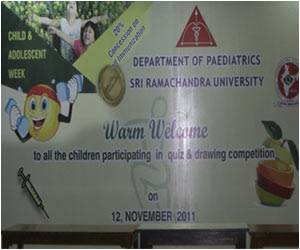School-based health centres are extremely effective in delivering comprehensive care, particularly vaccines to adolescents according to new research from the University Of Colorado School Of Medicine.

"School-based health centers can provide comprehensive care to children and adolescents who are hard to reach," said CU School of Medicine professor of pediatrics Allison Kempe, MD, MPH, and lead author of the study. "I think it's a very important model especially in underserved and low income areas. School-based health centers are not prevalent across the United States but I think they should be."
Kempe, director of the Children's Outcomes Research Program at Children's Hospital Colorado, said the scope of immunizations for adolescents has expanded markedly over the last few years, prompting discussions about a platform of inoculations for this population similar to those given to infants.
Immunizations recommended for adolescents include the meningococcal conjugate vaccine; tetanus-diptheria-acellular pertussis vaccine and the human papillomavirus (HPV) vaccine.
"While new vaccines targeted for adolescents certainly hold great promise, they also face certain challenges," Kempe said. "Adolescents are an age group that is less likely to access health care and only 9 percent of all health care visits by adolescents are for preventative care."
And then there are issues of parental consent, lack of health insurance, missed chances for vaccinations during routine doctor visits and scattering of immunization records among multiple providers.
Advertisement
They did a demonstration study of 265 females needing at least one vaccine. All of them received reminders to get their immunizations. Researchers did a second study that was a randomized controlled trial of 264 males needing vaccines. In that study, half of the males received reminders, calls or notes to get immunizations and half received their usual care.
Advertisement
"These data reinforce the notion that school-based health centers are very valuable in providing health care to kids who are uninsured, come from poor backgrounds or are adolescents," said Kempe. "Our study shows how well these kinds of reminders work in school. They are effective, easy and cheap."
Source-Eurekalert











